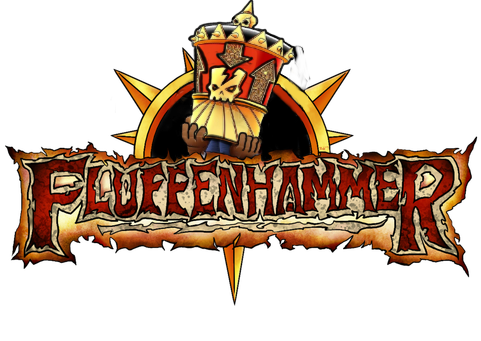Sunday Musings - Hasbro’s Gotta Hasbro
There was a time when Dungeons & Dragons didn’t feel like a product. It felt like a ritual.
Pencils, dice, snacks, and a party held together with nothing but character sheets and caffeine. The magic wasn’t in the monsters. It was in the people.
Fast forward to 2025, and that magic feels… thinner.
Not because the players are any less creative. Quite the opposite. But because the people in charge of the game seem more interested in protecting an IP portfolio than nurturing an art form.
And somewhere between the subscription tiers, the botched virtual tools, and the infamous OGL meltdown, Hasbro forgot a basic truth:
You don’t own D&D. You just publish it.
And right now, you’re publishing fear, frustration, and fire sales.
Let’s go back to the first misstep—though “misstep” implies this wasn’t a full-body pratfall into a pit trap.
In early 2023, someone at Hasbro decided the best way to maximize profit was to revise the Open Game License (OGL)—the bit of legalese that had allowed thousands of indie creators to make modules, adventures, settings, and spin-offs using D&D’s ruleset.
It introduced royalties, reporting requirements, and the ever-so-corporate idea that Wizards could revoke your license at any time for any reason.
The result was the kind of community uprising you usually only see in video game boycotts or fantasy revolutions.
Reddit flared. YouTube exploded. Creators pulled support. Subscriptions to D&D Beyond vanished like hit points in a meat grinder dungeon. Faced with the heat of a thousand angry dungeon masters, Wizards of the Coast reversed course. The OGL was preserved (after a few press releases and a hasty fire drill at legal), but something critical was lost. Trust had been spent. And for a game that relies entirely on trust between players, that’s not just bad optics. That’s a fundamental failure.
Next came Project Sigil—Hasbro’s shiny new attempt to drag D&D into the 3D digital age.
Now, let’s be clear: the idea wasn’t bad. Virtual tabletops (VTTs) are here to stay, and a good official one could’ve done wonders for accessibility.
Instead, what we got was a misguided tech experiment being run like a AAA game project by people who didn’t understand what RPGs are actually for.
It had beautiful terrain you couldn’t easily edit, broken rules integration, no meaningful support for house rules (you know, the backbone of every campaign) and pricing models that made premium content feel like a pay-to-win MMO.
Behind the scenes, reports trickled out—conflicts between designers and executives, shifting project goals, and a creeping feeling that Sigil was less a tool for play and more a DLC store with dice.
By March 2025, 90% of the Sigil team was let go. The VTT was quietly folded into D&D Beyond’s simpler web platform, and Hasbro moved on—leaving behind another crater where a community hub could’ve been.
Let’s address the dragon in the room: D&D isn’t just a game anymore. It’s an intellectual property portfolio.
And Hasbro, bless their quarterly revenue reports, has made that painfully obvious.It’s the transformation of a living hobby into a passive product line. It’s the shift from “How can we help people tell great stories?” to “How many 29.99 PDFs can we sell this quarter?”
And most egregiously, Hasbro utterly fumbled the golden goose that was Baldur’s Gate 3.
Larian Studios released Baldur’s Gate 3 and reminded the world why people fell in love with D&D in the first place.
It was messy. Human. Gorgeous. Dramatic. It gave us horned barbarians falling in love with brain-eating mystics, and let us play through it all without asking for a subscription. For once, the world outside the TTRPG bubble cared about D&D again. New players flooded in. Streamers made characters. Memes flowed.
And what did Hasbro do?
Nothing that mattered.
No big onboarding push. No simplified starter sets. No community-led campaigns. Just licensing restrictions, a few tweets, and more discussion about monetizing D&D Beyond than actually welcoming the newcomers in. If there was ever a moment to hand someone a free starter kit and say, “Welcome to the table,” it was then. Instead, Hasbro handed them a digital receipt and asked them to sign a terms-of-service agreement.
Still here. Still loved. Still played by millions.
But that love is increasingly conditional.
In taverns and Discord servers across the world, you’ll hear the same refrain:“We love the game. We just wish the company would get out of the way.”Because for every D&D fan who sticks with it, there’s another heading to systems like Pathfinder, Knave, MÖRK BORG, Blades in the Dark, or even back to Tunnels & Trolls—not because those games are simpler, or newer, or cheaper but because they respect the players more than the publisher.
Hasbro inherited a sacred thing. Not sacred in the religious sense, but sacred in the way only a shared childhood mythology can be. And then it did what big companies often do with sacred things:
It tried to monetise it until it bled.
But here’s the part they don’t understand:
You can’t kill D&D.
The name might fade. The brand might stumble.
But the game? The idea of a party, some dice, a notebook full of nonsense and a DM whispering, “You walk into a tavern…”? is a concept that will be here long after the shareholders forget what hit points are.
Because the true owners of D&D have never worked at Hasbro. They’re sitting at tables, right now, drawing maps and asking if they can loot the dragon’s hoard before someone else casts Fireball.

